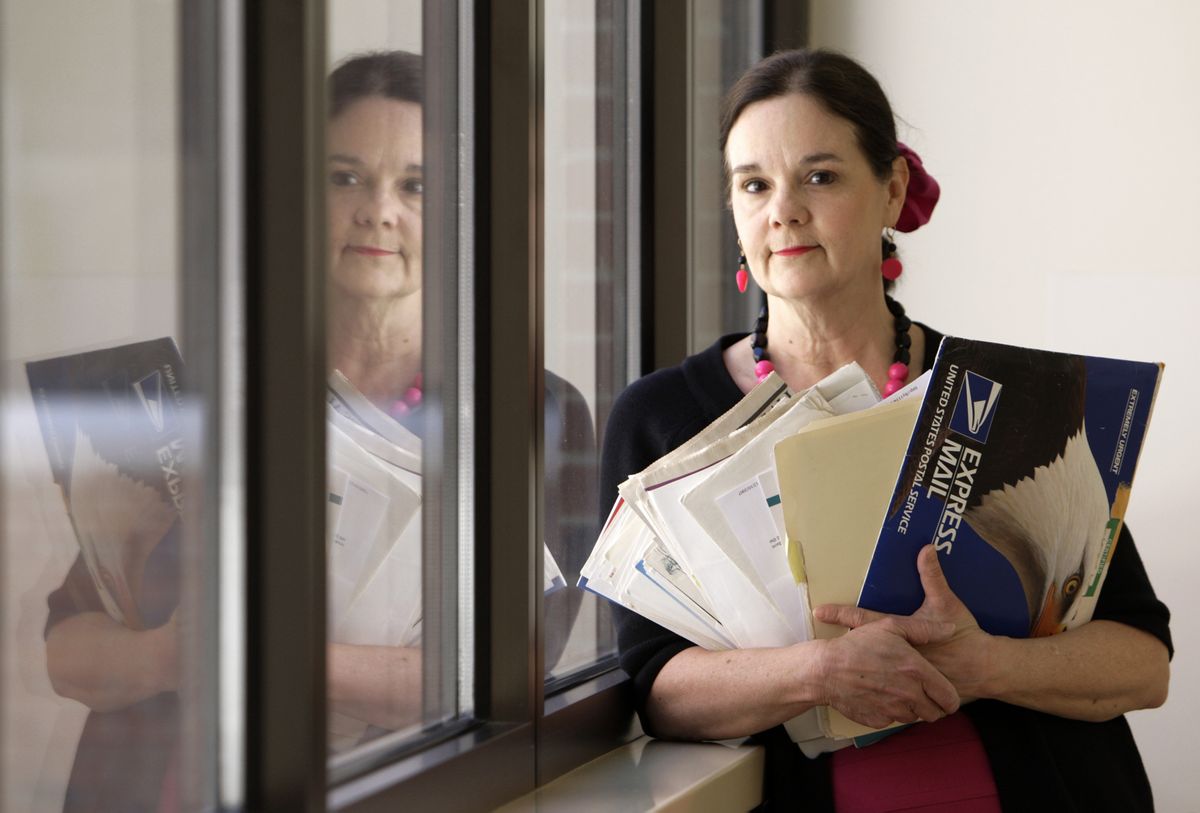Forgotten moms
Women who gave up children for adoption get their day of celebration as birth mothers

At church each Mother’s Day, Eileen McQuade used to watch forlornly as flowers were handed out to beaming women surrounded by their loving children.
Though she was raising two daughters, her special day was filled with grief and shame. In 1966, when she was an 18-year-old college freshman, she gave up her firstborn for adoption.
“I didn’t feel like I should take the flower because I didn’t feel I deserved it,” said McQuade, who splits her time between Delray Beach, Fla., and South Windsor, Conn.
Like McQuade, many birth mothers can’t shake their anguish and guilt when Mother’s Day rolls around each year, so they’ve taken on the Saturday before the holiday as their own: Birth Mother’s Day.
The day was established by a group of Seattle birth mothers in 1990 and has grown over the years to include candle lightings, poetry readings and other events around the country. In Spokane, a Mass was held Friday at St. Joseph’s Parish.
“The old myth about adoption was that birth mothers would go and have their children and forget it ever happened and the adoptees wouldn’t care where they came from,” said McQuade, 62, who was reunited with her daughter 12 years ago.
“We know that it doesn’t really happen that way. We have a much better sense of it now. Birth Mother’s Day is a healing for many.”
With an estimated 6 million adoptees in the United States and a trend toward more open adoptions, birth mothers have never been more out of the closet. They’re forming support groups and sharing resources as they struggle with sadness and a sense that society has left them in the shadows.
Many birth mothers relinquished newborns in the ’50s, ’60s and ’70s, when closed adoptions that sealed records and left them with little control seemed the only choice.
Now, birth mothers looking to reconnect with their children are finding that state laws aren’t making it easy.
Forty-two states require a court order to open original birth certificates that often list the names of birth mothers. Eight states allow adult adoptees to have copies of original birth certificates.
When Holly Spann, 55, of Nashville, Tenn., went looking for the daughter she gave birth to in 1971, she had no clues to point her in the right direction.
“I didn’t have a piece of paper, a court document, anything to prove I had had a baby except stretch marks and the memories,” she said.
Spann got pregnant at 17. She left her small town in Tennessee to live with relatives in Alabama while waiting to give birth, grieving for years over the closed adoption.
Celebrating Birth Mother’s Day is her way of acknowledging the past.
“Back then, birth mothers were basically told you’ll go on with your lives just like it never happened,” she said. “The fact that you gave a child up for adoption was really never to be spoken about again.”
She eventually found her child. They spoke once on the phone but have never met.
“For me that was the closure I needed,” Spann said. “She was so close to her parents that I could tell she didn’t want them to think she needed anybody else.”
The journey of “coming out” as a birth mother is a painful one, she said, but the Internet has done wonders to ease the way for both adoptees and birth mothers looking to access documents or just meet others for support.
Nicole “Coley” Strickland of Boiling Springs, S.C., found fellow birth mother Lani Dowling in Atlanta that way after blindly searching for support soon after giving birth to a boy in 2001 and placing him with a couple she met at the restaurant where she was a waitress.
Two years later, Strickland and Dowling founded Birthmombuds.com, which has 900 registered users around the country.
The two send out care packages to new birth mothers, pair up buddies living close to each other and host regular chats for birth mothers online. They also coordinate Birth Mother’s Day events every year.
For birth mothers who don’t live near one of the gatherings or don’t feel comfortable in a group setting, Strickland, 32, suggests they make Mother’s Day a little easier by writing something about – or for – their relinquished children, lighting a candle, planting a tree or donating a book to a library in their honor.
“It really does give us a time to bond with other birth moms,” said Strickland, who has regular visits with her now 7-year-old as part of an open adoption.
“We feel a lot of the same things at the same time. We need to be there for each other.”